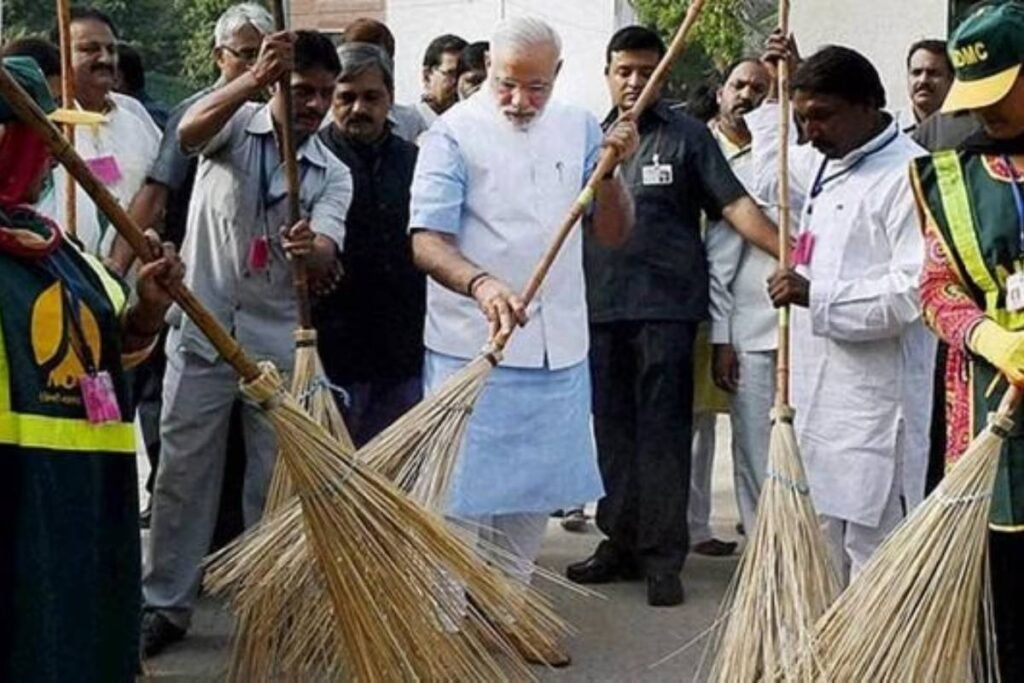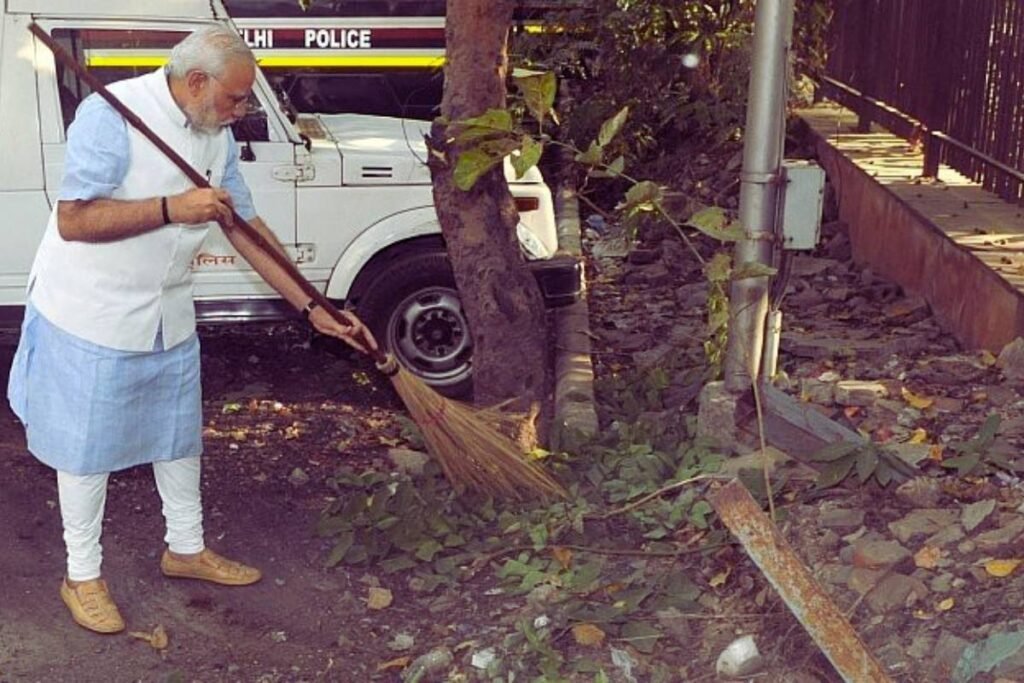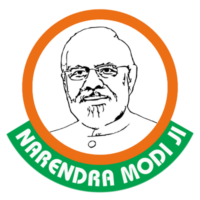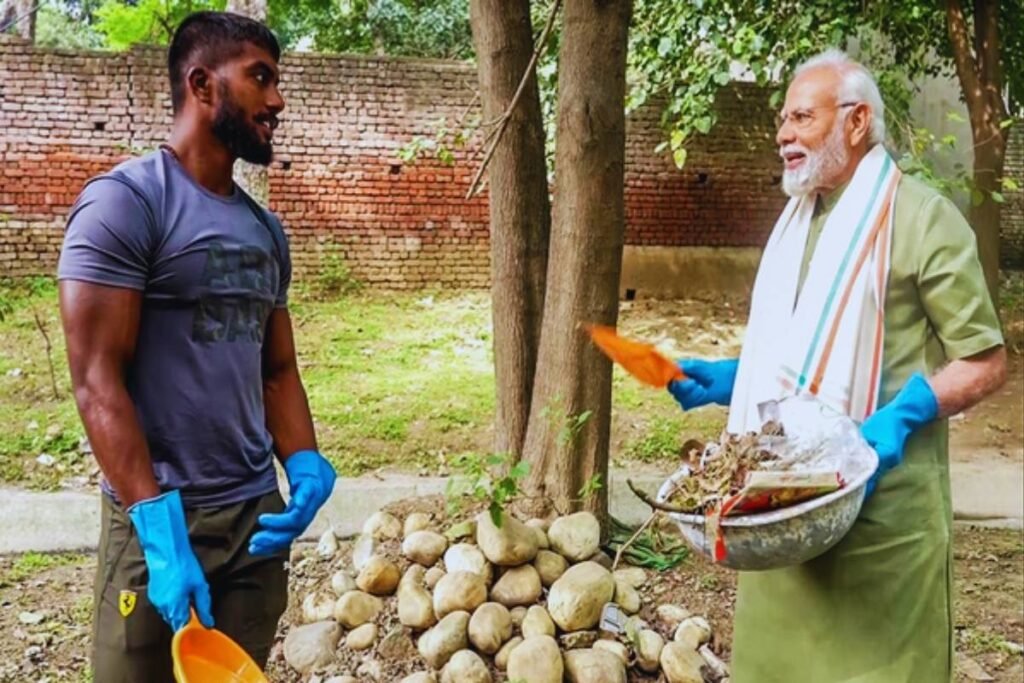On the occasion of Mahatma Gandhi’s 150th birth anniversary, Prime Minister Shri Narendra Modi launched the Swachh Bharat Mission in 2014, envisioning a ‘Clean India’ by 2019. This historic campaign, aimed at fostering a nationwide culture of cleanliness, was kickstarted with fervour and enthusiasm across the country.
Prime Minister Narendra Modi also took the charge by taking a cleanliness pledge at India Gate and initiating a mass walkathon at Rajpath. Encouraging the participation of millions of government employees, he emphasized Mahatma Gandhi’s vision of a clean and hygienic India. Picking up a broom himself, he set an example by cleaning the Mandir Marg Police Station, urging citizens to join the movement with the mantra ‘Na gandagi karenge, Na karne denge.’
The Swachh Bharat Mission (SBM) emerged as the world’s largest sanitation initiative, with a goal to achieve an Open Defecation Free (ODF) India by October 2, 2019. Remarkable progress was made, with over 10 crore household toilets constructed, elevating sanitation coverage from 39% to 100%. This monumental effort led to around 6 lakh villages declaring themselves ODF.
The impact of SBM extended beyond sanitation, contributing to economic, environmental, and health improvements, particularly empowering women. The campaign also achieved Sustainable Development Goal (SDG) 6.2, a significant milestone accomplished 11 years ahead of schedule.

Recognizing the need for sustainability, the Government of India approved Phase-II of SBM, allocating Rs. 1,40,881 crores. This phase focuses on achieving ODF Plus status by 2024-25, integrating Solid and Liquid Waste Management (SLWM) in villages. ODF Plus villages are categorized based on their waste management and cleanliness standards, aiming for visual cleanliness, minimal litter, and effective waste management systems.
As of October 2023, over 78% of villages have declared themselves ODF Plus, showcasing substantial progress. The Department of Drinking Water and Sanitation (DDWS) continues to implement innovative campaigns to accelerate momentum, emphasizing community participation.
Swachhata Hi Seva 2023 witnessed massive nationwide participation, with over 109 crore individuals and 71 Ministries and Departments of the Government of India actively engaging in the 18-day campaign.
Swachh Bharat Abhiyan stands as a testament to India’s commitment to cleanliness, paving the way for a cleaner, greener, and healthier nation.
- Narendra Modi: As the Prime Minister of India, Narendra Modi launched the Swachh Bharat Mission on October 2, 2014, with the vision of achieving a clean India by October 2, 2019. He has been actively involved in promoting cleanliness and hygiene through various initiatives and campaigns under the Swachh Bharat Abhiyan.
- Manmohan Singh: While serving as Prime Minister from 2004 to 2014, Manmohan Singh emphasized the importance of sanitation and hygiene in India. Though Swachh Bharat Abhiyan was launched after his tenure, Singh’s government laid the groundwork for sanitation initiatives that contributed to the foundation of the cleanliness mission.
- Atal Bihari Vajpayee: Atal Bihari Vajpayee, during his tenure as Prime Minister from 1998 to 2004, advocated for cleanliness and sanitation in India. Although Swachh Bharat Abhiyan was initiated after his tenure, Vajpayee’s government implemented various sanitation programs and policies that laid the groundwork for future initiatives.
These are some of the prominent Indian Prime Ministers who have contributed to the discourse and efforts towards cleanliness and sanitation in India, paving the way for initiatives like Swachh Bharat Abhiyan.
Objectives:
The primary objective of Swachh Bharat Abhiyan is to eliminate open defecation and promote cleanliness in public places. Additionally, the campaign aims to improve waste management systems, construct toilets in rural and urban areas, and create awareness about the importance of sanitation and hygiene practices.

Key Initiatives:
- Construction of Toilets: Swachh Bharat Abhiyan focuses on constructing toilets in households, schools, and public places to provide access to sanitation facilities for all citizens. This initiative aims to eradicate open defecation and ensure proper sanitation practices.
- Solid Waste Management: The campaign emphasizes the efficient management of solid waste, including segregation, collection, transportation, and disposal. It promotes the establishment of waste treatment plants and encourages recycling and composting to minimize environmental pollution.
- Behavioral Change Campaigns: Swachh Bharat Abhiyan advocates for behavioral change through awareness campaigns, community engagement, and educational programs. It aims to instill a sense of responsibility and encourage individuals to adopt clean and hygienic habits.
- Government and Public Participation: The success of Swachh Bharat Abhiyan relies on the active participation of government agencies, non-governmental organizations, and the public. Various stakeholders collaborate to implement cleanliness initiatives, monitor progress, and drive sustainable change.
Since its inception, Swachh Bharat Abhiyan has made significant strides in improving sanitation and hygiene across India. The construction of millions of toilets has reduced open defecation rates, resulting in improved public health outcomes and a cleaner environment. Additionally, the campaign has raised awareness about sanitation issues and fostered a culture of cleanliness among citizens.
Swachh Bharat Abhiyan stands as a testament to India’s commitment to achieving cleanliness and hygiene for all its citizens. By addressing sanitation challenges and promoting behavioral change, the campaign continues to transform the nation’s landscape, paving the way for a healthier and more sustainable future.

